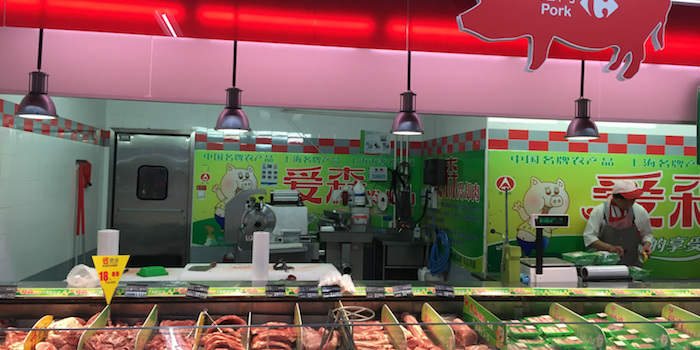Not many years ago, the idea of sending pigs’ trotters all the way to China would have seemed faintly ridiculous. But trotters, effectively a by-product here, are considered a quality product in China and in the global marketplace we now operate in, the deal, which goes way beyond trotters, makes perfect sense and delivers a huge boost to our industry.
The deal is a further sign of the trust in which the Chinese have in the British brand. It is also the culmination of a huge amount of effort, time, paperwork and air miles – not just by the Government, AHDB and meat company representatives who have patiently worked on it, but dating back to the groundwork laid by the likes of Mick Sloyan and Stewart Houston a decade or so ago.
While we might be lagging behind some of our larger EU neighbours in the pork export league, the value to the industry of this globalised approach – based on the simple principle of getting the right cut into the highest paying market – cannot be under-estimated.
This approach does not mean we can take our eye off the elephant in the room – falling domestic demand. The industry will be looking for a boost from the forthcoming autumn marketing campaign.
But what it does mean, as farmers look to the future, is that whatever is happening at home and whatever fluctuations we experience in the marketplace, there is real value in the pig carcase out there in China, the rest of Asia, the US and beyond. The more we can tap into it – and we are just scratching the surface now – the more stable the industry begins to look and the more reasons there are to be a pig farmer.
Brexit – if the UK delivers on its global ambitions – brings further opportunities. But, as you’ve heard many times before, with them come threats in the form of imports previously kept out by the EU’s approach to standards and the protection it maintains for its primary producers.
The Government’s plans for transitional customs arrangements for up the three years after we leave the EU, while subject to negotiation with a deeply sceptical Brussels, at least bring a little clarity – the cliff edge, hopefully, avoided.
But what then? The Government’s long-term plans for frictionless trade with the EU AND prosperous new trading relations outside it will take some serious negotiating. Our eventual destination is unclear.
But, as our analysis on page 17 shows, the outcome that must be resisted at all costs is a unilateral lowering of our tariffs, without reciprocal arrangements elsewhere. The impact of chasing cheap food in this way – from wherever and without the diligence of the deal discussed above – would be devastating for our industry.




